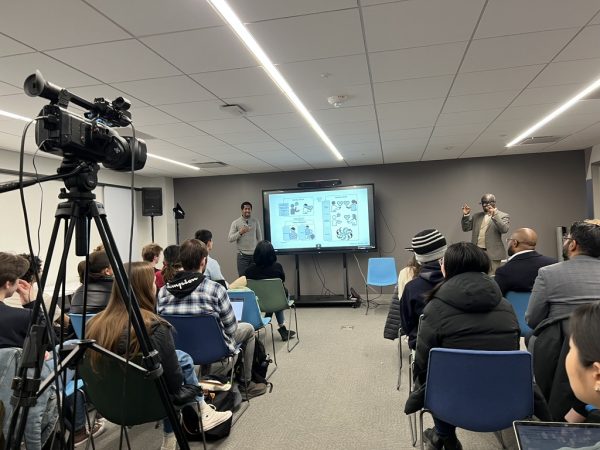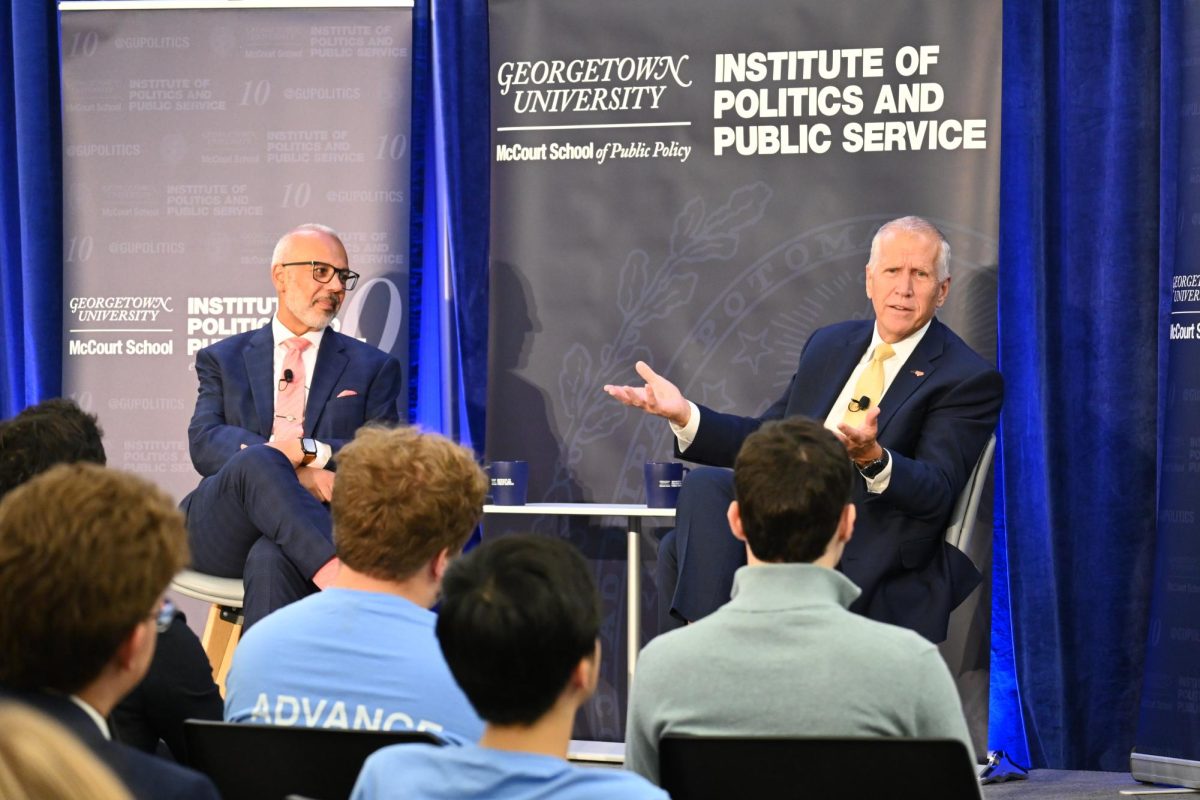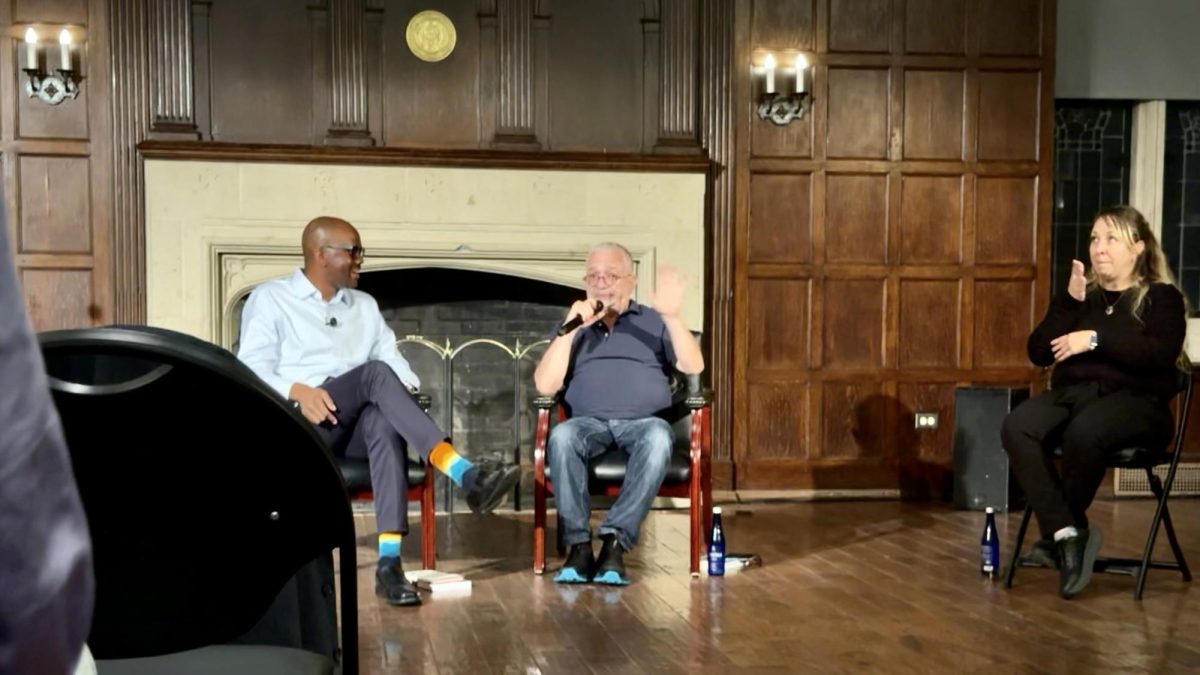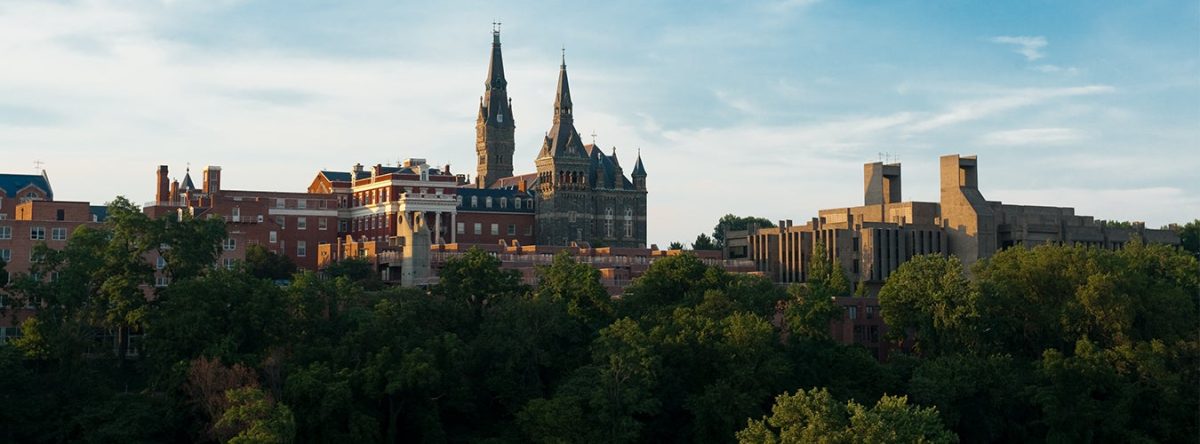A researcher and nephrology physician encouraged health care professionals to embrace the intersectionality of identities at an event Feb. 19.
Georgetown University’s School of Health (SOH), School of Nursing (SON), School of Medicine, Center for Health Equity — a center dedicated to health care justice and community service — and Disability Cultural Center co-hosted the event. Dr. Justin Bullock centered his identity as a gay and Black physician with bipolar disorder as he explored the pillars of identity safety — a method of creating an environment welcoming to all identities — fostering inclusive spaces of belonging.
Bullock said engaging positively with both others and oneself are necessary conditions to a sense of belonging and identity safety.
“There are three main pillars of identity safety,” Bullock said at the event. “One is a community-level pillar. One is an interpersonal pillar. One is an individual-level pillar. The community-level pillar is belonging.”
“Many of us have heard the term belonging, but I think there’s really two main definitions of belonging — one is, ‘I belong, I fit in because I am similar to these people,’ and the other is, ‘I belong and fit in because I’m welcomed as my authentic self,’” Bullock added.
Chloe Smith (SON ’26), who helped organize the event, said she wanted to continue to bridge the gap between students and careers in health care, and felt inviting Bullock to speak would contribute to diversifying the perspectives presented to students.
“Last year we actually had a nurse visit, and a lot of her words and verbiage were very resonant with my experience,” Smith told The Hoya. “Because I’m trying to get into nursing, it’s important to hear varying experiences.”

Recalling an experience working on a liver transplant, Bullock said consideration for doctors’ well-being can be rare.
“One of the surgery fellows one day came up to me and said, ‘Justin, what’s wrong? Justin, are you okay?’ I said, ‘Yeah, no, I’m fine.’ He’s like, ‘No, seriously, are you okay?’ And he is, to this day, the only person who has ever, throughout my entire medical experience, meaningfully asked me if I was okay,” Bullock said. “I was tearing up trying really hard not to cry. And he was like, ‘Justin, you’re fine, you’re doing fine, it’s okay.’”
Bullock added that such outreach is essential despite stereotypes portraying physicians as having no need of personal support.
“As I reflected back on this interaction, you know, there are all these stereotypes about surgeons and them being super tough and not crying, all these things. And for me, all I needed in that moment was just to be fine.”
Zach Lee (CAS ’25), another organizer of the event, said he felt inviting Bullock would foster discussion of diversity and disability studies in health care.
“I’ve always been interested in disability studies and its intersectionality,” Lee told The Hoya. “I think there’s so much to learn from this minority community, and I know in the health care field is probably where a lot of this harm comes from. I consider myself very privileged, and I want this to be a part of my pre-med education, by inviting experts and people who can talk about it and educating others.”
Bullock said lived experiences create better providers and that being a person first helps him provide better care to his patients.
“What we call ‘agency to serve’ is this idea that all of us have lived experiences that make us better,” Bullock said. “Providers make us better. Every human with identities can have such better medical care. I’ve been very fortunate that, since I started sharing about my mental illness, I’ve had a lot of opportunities to connect with so many people everywhere.”
Bullock added that he was grateful for how his mental illness makes him a better, more empathetic physician.
“I truly believe that my bipolar disorder is the most human part of myself, and for that I will always be grateful,” Bullock said.







